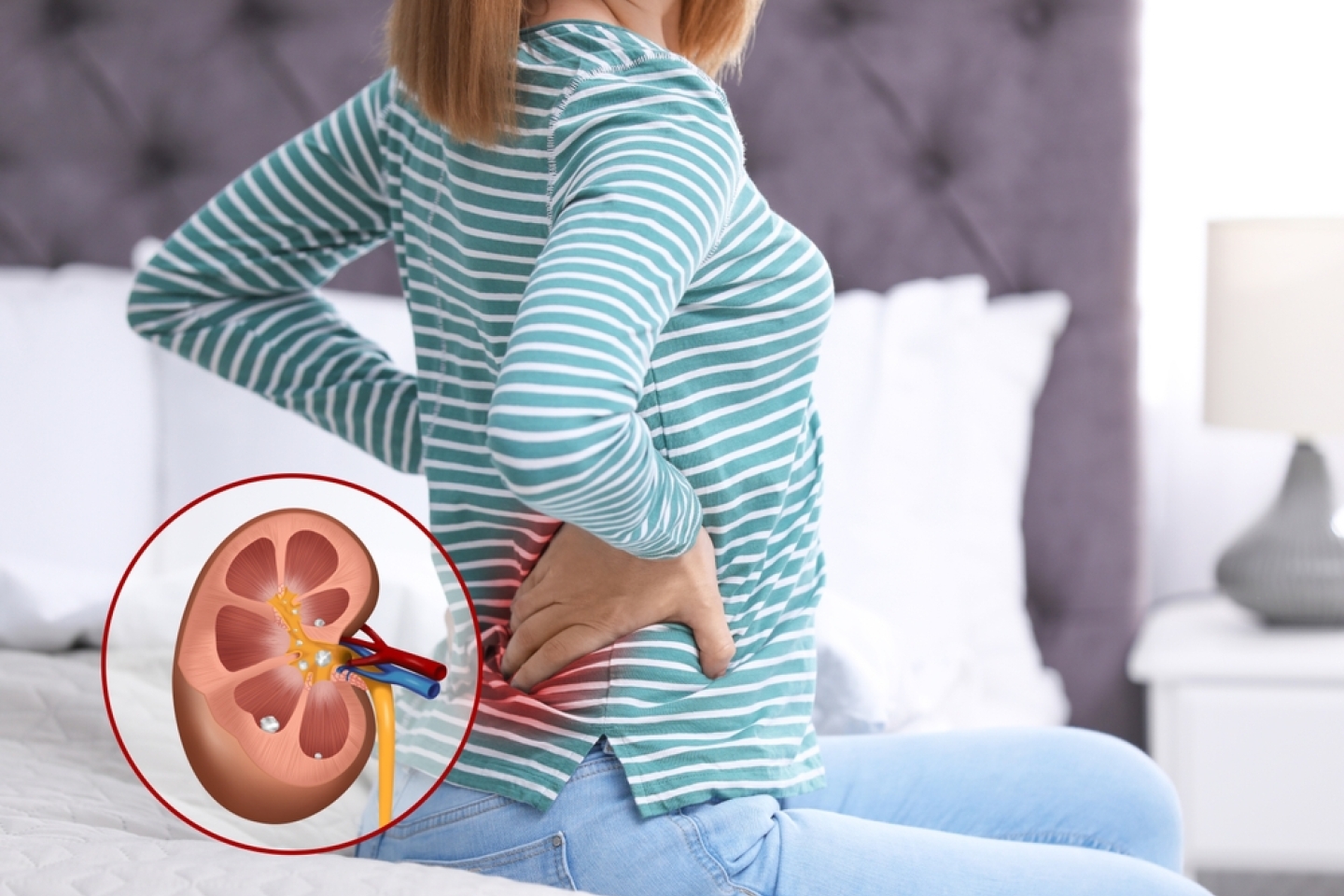
The following is part 1 in a 2-part series. Part 2 will focus on advanced treatments used to break up or remove kidney stones.
Some kidney stone sufferers, especially if they’re female, describe the pain they experience as worse than childbirth.
Before a stone leaves the kidney, you may not even know you have one. But once it starts its journey through the urinary tract, the pain it causes can be severe and debilitating.
Kidney stones are fairly common, says Dr. Luay Alshara, an endourologist and robotic surgeon who serves as an associate professor of urology and an associate attending urologist at Weill Cornell Medicine. In the United States, he says, about 1 in 10 people will experience a stone at some point in their lifetime.
Keep reading for answers to your FAQs about kidney stones, including:
Kidney stones are hard deposits that form in the kidneys from minerals and salts in the urine. They can vary in size, from as small as a grain of sand to as large as a golf ball.
Their composition varies, Dr. Alshara says. Here are the most common types:
Calcium stones are the most common type of kidney stone, accounting for roughly 80 percent of cases. Calcium oxalate stones are the most common subtype. These may form when calcium combines with oxalate, a compound found in certain foods such as spinach, nuts and chocolate.
Uric acid stones develop when a person’s urine is too acidic, often due to:
Struvite stones are composed of magnesium ammonium phosphate. They’re usually caused by urinary tract infections (UTIs) that produce ammonia. Struvite stones can grow quite large, and they’re more common in women than in men.
A combination of lifestyle, medical and genetic factors may heighten a person’s risk of developing kidney stones. Higher-risk individuals include the following:
About half of those who have had one kidney stone will develop another one within 5 to 10 years.
People who don’t drink enough water, live in a hot, dry climate or sweat excessively are at higher risk for developing a stone.
“Kidney stones are often discovered during imaging tests conducted for other reasons,” says Dr. Alshara. “On the other hand, when a patient comes to us with the symptoms we associate with stones, we take a thorough history, perform a physical exam and order blood tests and imaging studies.
“Imaging is the most reliable way to confirm the presence, size and location of a kidney stone,” he continues. “In people with recurrent stones, a full metabolic evaluation is often part of the process as well,” including a 24-hour urine analysis, blood tests and stone analysis.
Kidney stones can cause a variety of symptoms, depending on their size and location, and whether they’re obstructing your urinary tract. Symptoms can range from mild discomfort to severe, debilitating pain on your side, in the back below your ribs or in your lower abdomen. The pain may radiate to your groin as the stone moves through your urinary tract.
Over-the-counter medications such as ibuprofen (Motrin, Advil), naproxen (Aleve) and acetaminophen (Tylenol) are the first line of defense against pain, Dr. Alshara says. “However, your pain may require stronger, prescribed medications and muscle relaxants to help relax the ureter and ease the passage of a stone.
“We also encourage patients to drink plenty of water to help flush out the urinary system,” he adds. “That may help the stone to pass more quickly. A heating pad can also be applied to the affected side to relax the muscles and relieve pain.”
If your pain is unbearable, you may need to seek emergency care.
Preventing kidney stones may involve a combination of dietary changes, lifestyle modifications and, in some cases, medication—especially for people who have had prior episodes.
“The goal is to reduce the risk factors that contribute to stone formation,” Dr. Alshara says.”
Here are his best recommendations:
Stay tuned for part 2 of this series, which will provide information about ways to break up or remove “garden variety” as well as complex kidney stones.
Take control of your kidney health. Make an appointment with a specialist by calling 646-962-9600.